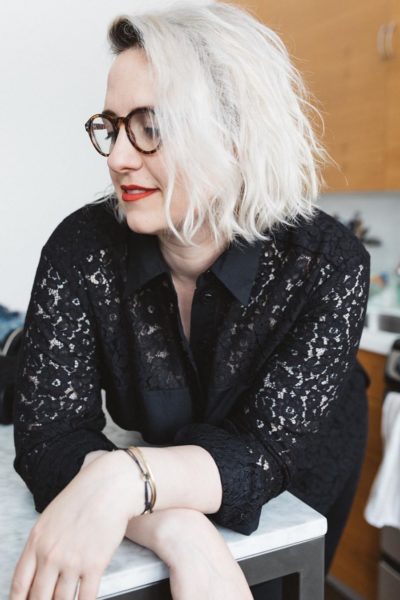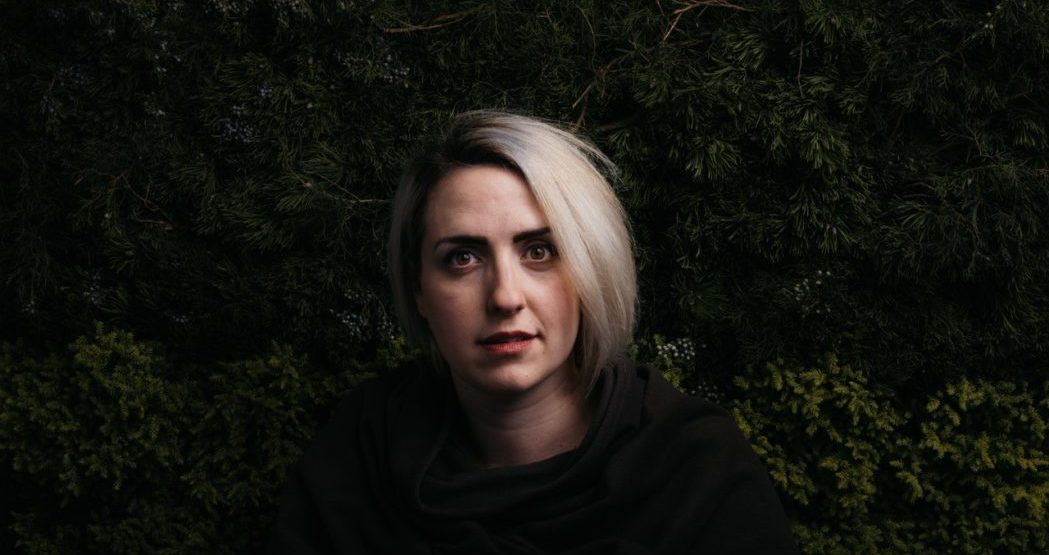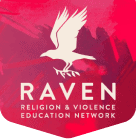Below, Suzanne Ross interviews the 2019 Raven Award winner, Audrey Assad. In their conversation they explore faith, Audrey’s music, God’s love, and the secret of life.
The talented and profound singer-songwriter Audrey Assad recently covered James Taylor’s “The Secret of Life” for her Instagram followers. The song is a wonderful gift for those of us struggling to deal with life during the coronavirus pandemic from a woman who is not afraid to share her own challenges openly and honestly.
For instance, as explained in an earlier version of her website:
Sometimes the most compelling art and spiritually nourishing songwriting comes after a challenging season, though in the case of consistently thought-provoking troubadour Audrey Assad, it appeared after a gut-wrenching deconstruction of her fundamentalist faith foundation, alongside crippling battles against anxiety.
Her journey away from a God who judges mercilessly to one who is mercifully forgiving infuses her music with a rare combination of doubt and hope. So many of us have had to travel that road. We’ve had to find the courage to leave the faith of our childhood behind, to risk hurting family and friends as we seek out new communities that celebrate each and every person as a beloved child of God.
You may find, as I did, that Audrey’s music is a great soundtrack for that journey. You may even find that her story resonates with your own and helps you to realize that you are not alone in your questions and doubts. I suspect that’s why she shares so much of her personal life with us.
No one knows the secret of life, not Audrey, not I, and not even James Taylor though he dared to write a song about it! But there are secret bits of wisdom that we do well to hold onto when life is feeling especially hard. Like this bit from Taylor, “It’s okay to feel afraid / But don’t let that stand in your way.”
If you listen to Audrey’s music, you’ll find lots of gems like that. I invited her to answer a few questions for us about her music and her spiritual journey so you can get to know her a little bit. I found quite a few bits of wisdom in her responses that I needed to hear. I hope you find some too and that you enjoy meeting Audrey and feel inspired to allow her music to keep you company in the days and weeks ahead.
Music has always been a vehicle of great healing in my life. I need the sound of music to survive this world. I think we all do.
Suzanne: In an interview on the release of Deliverer you said that “As a young person, I was constantly trying to scrub myself clean for God’s approval… I viewed God as mercilessly just, as offended by my every action, and as a demanding, possessive force whom I was constantly disappointing.” Can you share a bit more about the idea of God you were raised with and how it affected you?
Audrey: When I was young I had a picture of God that looked a little something like this: God was holy and just and lived far, far away somewhere. His standards were impossible to meet because He was perfectly good, and I was wholly bad. I needed someone to meet those standards in my place, and Jesus was that someone—so Jesus purchased my salvation with the cost of His own life, and I was safe from the wrath of God.

My childhood ideas of a distant, tyrant, bloodthirsty God very much shaped my relationship with Christ to exist in a way I can only now describe as wounded, fearful, and sad. I relied on Jesus to defend me from God, who (in my mind) didn’t like me, didn’t want to be near me, and who only loved me because Christ had died on the cross for my sins and I had asked Him to save me. I had no sense of continuity when it came to God the Father and Jesus Christ—I was trinitarian by confession but couldn’t really see them as the Same Person, One God, with the Holy Spirit—because in my head, who Jesus was was almost antithetical to who God the Father was. I felt them to be at odds. ‘Thank You, Jesus’, I would pray in a whisper, relieved that I wasn’t going to be subject to God’s rightful anger towards me. I was grateful that God, whom I saw as being consumed by rage and the need for blood, had found it in Someone who was not me. I was Isaac on the altar—Abraham was my God, his knife drawn up to slay, and Jesus was the ram who appeared in the thicket at just the right moment. That was what salvation meant to me.
I grew up with some rather terrible and terrifying ideas about who God was. Mostly, I believed that God only loved me because Jesus stepped in between us and God couldn’t see me anymore—this contributed to many years of a tormented and broken-down relationship with God, based mostly in fear and shame.
The Olive
Branch
Take A Breath with Us
Our weekly newsletter creates a space to take a breath. Once we slow down, we can see the way desire, imitation, and conflict operate in our lives and in the world, and begin to create peace. In addition to the newsletter, you will receive the free "Unlearn the Bible" ebook when you subscribe.
Audrey: My understanding of God’s mercy began to blossom in the wake of my disillusionment with Catholicism. I became a Catholic in 2007, attracted to the Sacraments (or, at least, to the idea of them) and also to the idea of an institution that had all of the answers to life’s spiritual questions. Imagine my surprise when I inevitably encountered the humanity of the institution, and when I was then compelled to confront the existential dread and religious doubt I had been feeling for my whole life! This is a long story for another time, but I rapidly lost touch with most of what I thought I believed. It turned out I had largely been using institutional religion as a Band-Aid for my very real fears and questions. Not to say that that’s all I believe institutional religion to be—it’s just the discovery I made about my relationship to it at the time.
I explored nihilism for a time, and rather quickly found it so bleak I couldn’t sustain it and stay alive, so my search for a benevolent God was rooted in my desire to live and be joyful. I eventually found my way to Richard Rohr’s “Falling Upward” and found a lot of spiritual healing in its pages. I also discovered a fair amount of religious trauma in my past and was able to seek a good deal of healing in trauma therapy, which also helped heal my fundamental ideas of God.
Suzanne: Like so many of us, Audrey, your spiritual journey has not been a smooth one. You’ve spoken about going through a long period of doubt and healing when you couldn’t write much at all, a drought that ended with your new album Evergreen. Could you sing during that time? Were you able to worship? Can you talk about the place music occupies for you in those dark nights of the soul?
Audrey: The short answer is yes, I could sing—but no, I was not able to actively worship. I was able to ask for help, and I was able to beg God to talk to me, but worship felt completely out of reach. They tell you to worship in the darkness, but when you’re actually thinking you might be a nihilist, it’s difficult to pull off. I made a hymns record because I couldn’t pray but I still desperately wanted some of what I’d believed to be true. Inheritance was born out of that; Evergreen came about after I had begun to open back up to the idea of a loving God.
Music — the sounds, the rhythms, and the frequencies — has always been a vehicle of great healing in my life. Lyrics aren’t really up there for me. I need the sound of music to survive this world. I think we all do.
Suzanne: The world is facing big problems brought on by the pandemic and we can really feel overwhelmed by it all. I love your song “Little Things with Great Love” from the Evergreen album because it reminds us that small things can have an impact. Do you feel overwhelmed sometimes? How do you deal with that feeling when it comes up?
Audrey: Yes, every day. I remind myself that despair is the luxury of the privileged, and that to give up is to choose my temporary comfort over the greater good. We all need to balance our burdens for the world with our people and responsibilities at home—but in general, I try to reject despair because it feels like abandoning the poor.

Suzanne: Audrey, we were delighted to present you with the 2019 Raven Award year for Your Peace Will Make Us One where you give us new lyrics to the tune of the Battle Hymn of the Republic. Your song captured the challenge we face to transform the belief, held by so many, that God approves of our violence. Your lyrics challenge the idea that God’s glory is found in the campfires of armies preparing for battle. What inspired you to rewrite those lyrics?
Audrey: I was simply sitting at a lecture on community from a few academics at a Porter’s Gate event, and the lyrics came to me in one piece. I grabbed a pen and wrote them down furiously and the tears poured over, and that was that. Most songs don’t happen like that. The discipline and one of the deepest joys of my life is to do the mundane work of being available when they do.
You can find Audrey’s album, Evergreen, on all streaming platforms. Click here to listen on Spotfiy.
Additionally, you can find her album of hymns Inheritance, on all streaming platforms as well! Click here to listen on Spotify.

